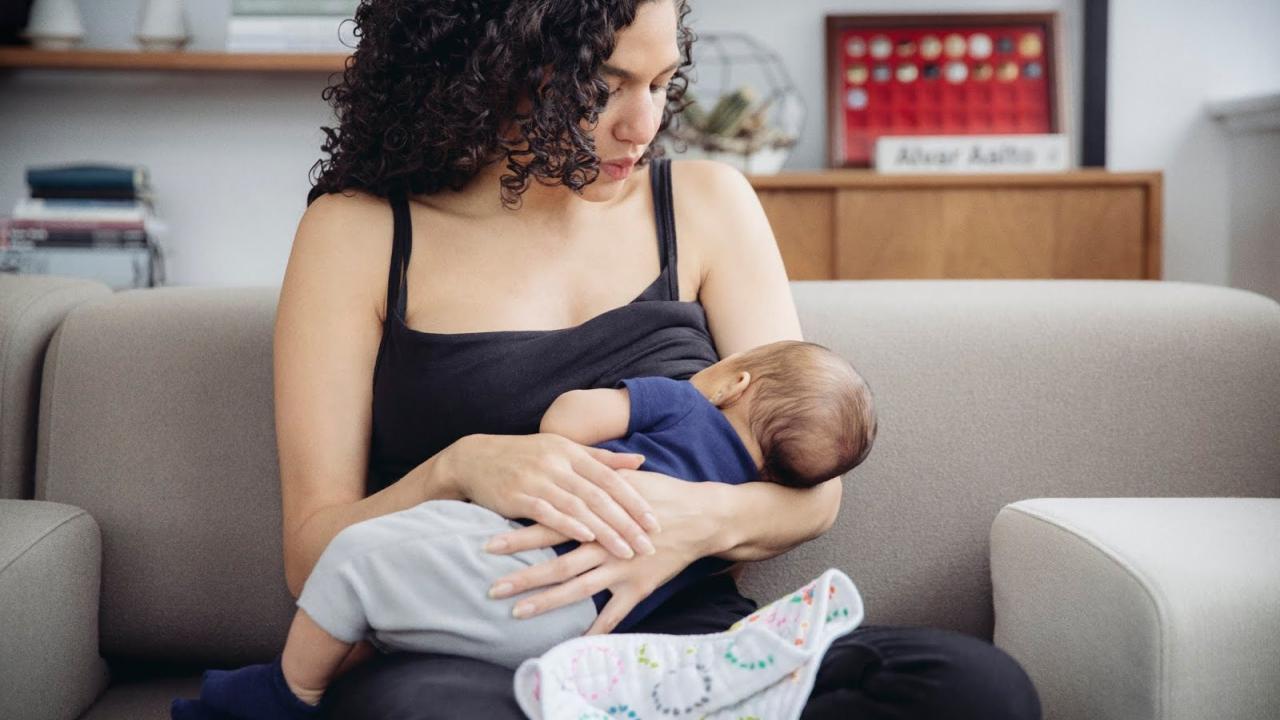Key Points
Breast milk is the best food for babies in the first year of life. It helps babies grow healthy and strong.
Breastfeeding helps protect a baby from many illnesses. Breastfed babies have fewer health problems than babies who don’t breastfeed.
Your breast milk changes as your baby grows so he gets exactly what he needs at the right time.
It’s best to feed your baby only breast milk for at least 6 months. Keep breastfeeding for 12 months, even when your baby starts solid foods
Why is breastfeeding good for your baby?
Breast milk is the best food for babies in the first year of life. It helps them grow healthy and strong and protects them from infections and illness. For example:
- Breast milk has hormones and the right amount of protein, sugar, fat and most vitamins to help your baby grow and develop.
- Breast milk has antibodies that help protect your baby from many illnesses. Antibodies are cells in the body that fight off infection. Breastfed babies have fewer health problems than babies who aren’t breastfed. For example, breastfed babies don’t have as many ear, lung or urinary tract infections. And later in life they’re less likely to be overweight or have asthma, certain cancers and diabetes (having too much sugar in the blood).
- Breast milk has fatty acids, like DHA (docosahexaenoic acid), that may help your baby’s brain and eyes develop.
- Breastfeeding can reduce your baby’s risk for sudden infant death syndrome (also called SIDS). SIDS is the unexplained death of a baby younger than 1 year old.
- Breast milk is easy to digest. A breastfed baby may have less gas and belly pain than a baby who is fed formula. Formula is a man-made product that you buy and feed your baby.
- Breast milk changes as your baby grows so he gets exactly what he needs at the right time. For example, for the first few days after giving birth, your breasts make a thick, sticky, early form of breast milk called colostrum. Colostrum has nutrients and antibodies that your baby needs in the first few days of life. It changes to breast milk in 3 to 4 days.
- Breast milk is always ready when your baby wants to eat. The more you breastfeed, the more milk you make.
In the United States, most new moms (about 80 percent) start breastfeeding. More than half (about 58 percent) of moms breastfeed for 6 months. About one-third of new moms (36 percent) breastfeed for 12 months. Our March of Dimes Breastfeeding Guide has tips for breastfeeding holds, using a breast pump and storing breast milk.
Is breastfeeding good for babies with special needs?
Yes. Some babies are born prematurely or with birth defects or other medical conditions. Breastfeeding babies with special needs like these can help them grow and protect them from illness. Premature birth is birth before 37 weeks of pregnancy. Birth defects are health conditions that are present at birth. They change the shape or function of one or more parts of the body. Birth defects can cause problems in overall health, how the body develops or how the body works.
If you baby has health conditions like these, you may need extra help to make breastfeeding work. Your health care provider, your baby’s provider or a lactation consultant can help you and your baby learn to breastfeed. A lactation consultant is a person with special training in helping women breastfeed.
Is any amount of breastfeeding good?
Yes. It’s best to feed your baby only breast milk for at least 6 months. This means no water, formula, other liquids or solid food — just breast milk. But any amount of breastfeeding is good for your baby’s health and development. Even breastfeeding for a short time is good for your baby.
Is breastfeeding good for mom?
Yes. Breastfeeding helps you because:
- It increases the amount of a hormone (chemical) in your body called oxytocin. This helps your uterus (womb) after birth go back to the size it was before you got pregnant. It also helps stop bleeding after giving birth.
- It burns extra calories. This helps you get back to your pre-pregnancy weight (your weight before pregnancy).
- It may help lower your risk for diabetes, breast cancer and ovarian cancer.
- It can help you bond with your baby. Bonding is when you get close to your baby and get to know each other.
Breastfeeding also delays the return of your period. But this can make it hard to know when you can get pregnant again. Use birth control to help prevent pregnancy until you’re ready to get pregnant again. Talk to your provider about birth control that’s safe to use when you’re breastfeeding.
Is breastfeeding safe for all moms and babies?
No. Breastfeeding may not be safe for your baby if:
- You have certain medical conditions
- Take certain medicines
- Use harmful drugs
You can pass some infections, medicines and drugs to your baby through breast milk. Some can be harmful to your baby. Learn how to keep breast milk safe and healthy. Talk to your provider if you think you have a condition that may make breastfeeding unsafe for your baby.
More information
American Academy of Pediatrics
International Lactation Consultant Association
womenshealth.gov/breastfeeding
Last reviewed April, 2019
See also: Breastfeeding your baby in the NICU

